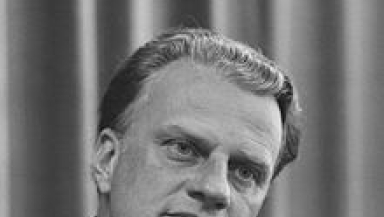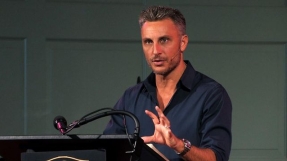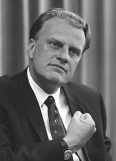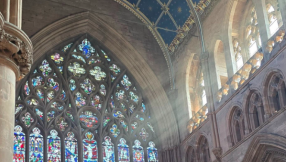
I was a bit disappointed in Billy Graham the first time I heard him speak, to be honest.
It was during the Mission England campaign in 1984. I was living in Bristol and it was the biggest thing to hit the city, religiously speaking, since John Wesley's day. A massive church campaign saw a semi-redundant city centre Anglican church taken over as the nerve-centre for administration. I spent time stuffing a mountain of envelopes there.
Churches that were far from natural collaborators found a common cause, even the very conservative evangelical one that I attended – a rather heated church meeting resolved to support the event after voting down those who objected to the fact that Roman Catholics would be taking part as well. Training evenings on how to invite our friends and pray for success saw thousands of people gather in the old Methodist Central Hall, the only building large enough to take us all.
We, however, were the future. Our churches were primed to receive converts. We had all invited people to come. The newspapers gave us space which frankly I doubt they would today. The meetings were at Ashton Gate football stadium; Cliff Barrows sang; I sang, too, though only as part of a choir of several hundred; and we waited with bated breath for the great man to appear.
I don't quite know what I expected, but it wasn't that. I had grown up in evangelical churches and was used to a high standard of preaching of a particular type; very dense and text-heavy. This was so simple it was almost simplistic. God loves you, Christ died for you. Now you need to repent of your sins and get out of your seats and come to the front and someone will pray with you.
I was amazed by what happened next. There was no hysteria, very little emotion at all, in fact; but calmly and matter-of-factly, people began to make their way down to the front in their hundreds, almost overwhelming the counsellors. People waited in line for a long time, leaving their friends and families in the stands; eventually they went back satisfied – job done.
I have often wondered why, when Billy Graham preached that message, it had such remarkable results, whereas if someone else had done so – me, for instance – the chances are that nothing would have happened at all apart from the creation of a vague sense of embarrassment. I think it has something to do with him being a prophet. He was a man of absolute conviction and transparency, who sometimes seemed to speak from the very footsteps of the throne of God. If what he said was simplistic, it was simply true, and people responded to it.
The next time I heard him was a few years later, in Budapest, at a European Baptist Federation Congress. There were only 12,000 Hungarian Baptists at the time, but they had made a great leap of faith and booked the People's Stadium – the famous Nepstadion – for an evening rally. It was 1989, communism was crumbling and 90,000 people filled it to capacity. It was a warm summer's evening; the choir sang, dignitaries brought greetings – the Roman Catholic Cardinal was there to give his blessing to this American Protestant's message – and when the call to respond was given, the aisles filled with thousands of Hungarians queueing to get to the platform. They stood patiently for what seemed like hours (we left long before the last had been seen); but how long will a hungry person stand in line for bread?
Again, the message – this time through the medium of a translator – was entirely simple, and I sensed my companions' apprehension. Would it work?
I sat there feeling smug – and inexpressibly moved at the sight of all those people offered the gift of life, and receiving it with gladness.
Billy Graham has been honoured throughout the world for his ministry. He was the kind of person God sends only once in several generations. To argue, as some will, that his kind of evangelism has had its day is to miss the point; in its day, it was a powerful instrument of God's grace and in Billy Graham it found its finest and most devoted servant.
Follow Mark Woods on Twitter: @RevMarkWoods

















